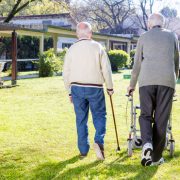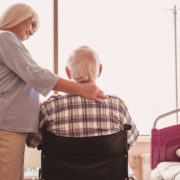National Picnic Month in Alzheimer’s Care Facilities
National Picnic Month is celebrated in July of every year. This is also a great time for Alzheimer’s care facilities to plan outdoor picnics for residents. Take note that picnics provide a fun and relaxed setting for socializing and enjoying nature, which can improve mood and well-being.
Being outdoors and participating in group activities helps stimulate the mind and can bring back happy memories. It also offers a break from routine, making residents feel refreshed. Family members can join in this type of celebration, creating a sense of community and support. It will be a great time for picnics as they offer a joyful and beneficial experience for those in Alzheimer’s care facilities.
National Picnic Month
Celebrating the outdoors during the summer through a great dining experience has been around for ages. In fact, picnics have been used for family gatherings or celebrations since the medieval period.
National Picnic Month celebrates the history of picnics and the way they bring cultures, people, and countries together. This occasion also encourages people to enjoy dining outside, as it is a perfect time to gather with friends and family for a meal in the backyard, park, or any outdoor space.
The celebration of National Picnic Month in Alzheimer’s care facilities is quite beneficial in the sense that it can offer a change of scenery and an opportunity to enjoy nature. Moreover, it can lift spirits and improve one’s well-being.
Celebrating National Picnic Month in Alzheimer’s Care Facilities
It is always beneficial to celebrate family gatherings in Alzheimer’s care facilities, particularly National Picnic Month. It can provide seniors with many benefits for their health, both mentally and physically, aside from making good memories for both the resident and the caregiver.
Of course, there are meals that residents will have to partake in with family or friends within the facility. Therefore, it is essential to be sensitive to the doctor’s dietary restrictions or suggested meal plans. You have to keep dishes simple when preparing for the picnic meal.
Planning for an ideal picnic experience with seniors
If you are going to prepare for the perfect occasion for seniors, it is best to plan. Although assisted living communities like Alzheimer’s care facilities are not such an inviting outdoor community space, it is still possible to create a variation of a picnic location.
- Choose your location to spend time and celebrate National Picnic Month with residents.
- If possible, plan for your menu and supplies needed for the occasion that should be portable and easy to assemble
- It will also benefit you and your loved one to ask for assistance if you find it challenging to plan on your own
Better yet, create your version of a picnic when you visit your loved ones in Alzheimer’s care facilities to give your old folks a more intimate party. It can even give your aging loved ones to continue feeling involved in life and provide them with something they can enjoy exclusively.
Looking for excellent senior care in Nebraska? Click here to learn more about Fallbrook Assisted Living!
Fallbrook Assisted Living is proud to offer its services to Fremont, NE, and surrounding areas and cities: Arlington, Cedar Bluffs, Ames Nickerson, Fontanelle, Arlington, Leshara, Colon, and Hooper











